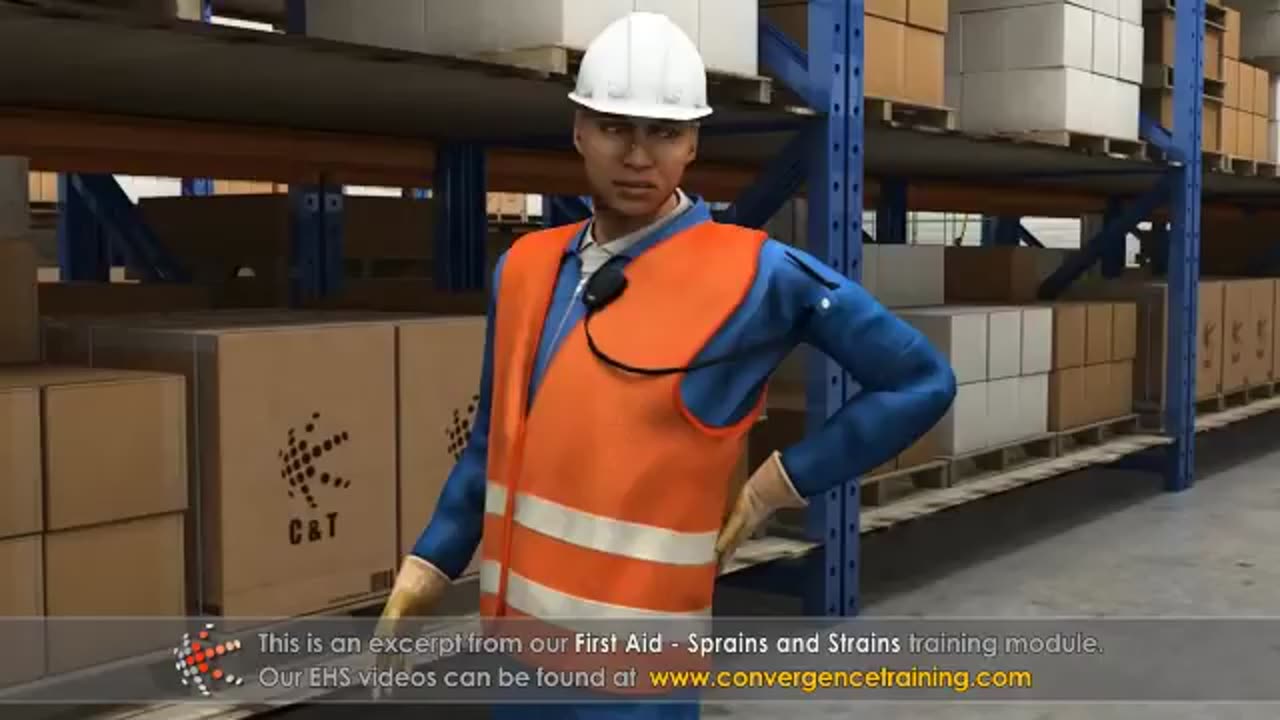Premium Only Content

First Aid - Sprains and Strains Training
A first aid training session for sprains and strains should focus on recognizing these injuries, providing immediate care, and understanding when to seek professional medical help. Below is an outline of a training program:
---
### **Training Outline: First Aid for Sprains and Strains**
#### **1. Introduction**
- Overview of sprains and strains:
- **Sprains**: Injury to a ligament caused by stretching or tearing.
- **Strains**: Injury to a muscle or tendon from overstretching or overuse.
- Common causes:
- Sports injuries, falls, improper lifting, or overexertion.
- Importance of immediate and proper first aid.
---
#### **2. Identifying Sprains and Strains**
- Symptoms of sprains:
- Pain around the affected joint.
- Swelling, bruising, and reduced mobility.
- Symptoms of strains:
- Muscle pain or tenderness.
- Swelling, muscle spasms, and limited movement.
- Differentiating sprains from fractures (e.g., severe deformity, inability to bear weight).
---
#### **3. Immediate First Aid: R.I.C.E Protocol**
- **R**est:
- Stop the activity to prevent further injury.
- Immobilize the affected area.
- **I**ce:
- Apply a cold pack or ice wrapped in a cloth for 15–20 minutes every 2–3 hours for the first 48 hours.
- **C**ompression:
- Use an elastic bandage to wrap the area snugly but not tightly, ensuring circulation.
- **E**levation:
- Raise the injured limb above heart level to reduce swelling.
---
#### **4. Managing Pain and Swelling**
- Use over-the-counter pain relievers like ibuprofen or acetaminophen.
- Avoid heat application for the first 48 hours (as it can increase swelling).
---
#### **5. When to Seek Medical Help**
- Signs of a severe sprain/strain:
- Intense pain, inability to move the joint/muscle, or bear weight.
- Numbness, discoloration, or significant swelling.
- Persistent symptoms beyond a few days.
---
#### **6. Prevention Tips**
- Warm up and stretch before physical activities.
- Wear proper footwear and protective gear.
- Avoid overexertion during exercise or work.
---
#### **7. Practical Demonstrations**
- Demonstrate how to:
- Apply ice and compression correctly.
- Use a bandage for support.
- Safely elevate a limb.
- Practice scenarios:
- Role-play handling a sprain or strain during sports or daily activities.
---
#### **8. Quiz and Review**
- Quick assessment to test participants' knowledge.
- Review key points and clarify questions.
---
Would you like additional details or tailored materials for this training program?
-
 6:54
6:54
HSESafetyInformation
2 months ago6 Must Try Breakfast recipes By Food Fusion
341 -
 58:42
58:42
Coin Stories with Natalie Brunell
16 hours agoMacro Analysis, Financial Fragility and Bitcoin as the End Game with Preston Pysh
28.7K4 -
 2:35:37
2:35:37
TimcastIRL
7 hours agoTrump Celebrates 100 Days Amid RECORD Lawsuits & Unconstitutional Judicial Actions | Timcast IRL
200K82 -
 1:01:26
1:01:26
Glenn Greenwald
8 hours agoRapid Fire: Canada Elections, Dem's Sit-In, Israeli Taking Points Escalate; PLUS: Jewish Academics Push-Back on Antisemitism Claims | SYSTEM UPDATE #445
121K121 -
 2:20:43
2:20:43
RiftTV/Slightly Offensive
8 hours ago $14.40 earnedTotal Indian TAKEOVER: Has The WEST Completely FALLEN? | Guest: Josh Denny
62.3K25 -
 9:46
9:46
Mrgunsngear
7 hours ago $11.16 earnedHow To Turn Your Glock Into A PCC
61.1K11 -
 16:12
16:12
T-SPLY
16 hours agoJeff Bezos Is Now Enemy #1 For The Trump Administration
128K97 -
 12:24
12:24
Tundra Tactical
8 hours ago $6.90 earnedThe SIG Roast to ND Them All
68.7K8 -
 1:02:31
1:02:31
BonginoReport
11 hours agoDeportations Keep “Frightened” Michelle Obama Awake at Night (Ep. 37) - Nightly Scroll with Hayley
159K200 -
 1:54:29
1:54:29
Adam Does Movies
2 days ago $3.30 earnedTalking Movie News & Just Chatting About Films - LIVE!
55.4K3